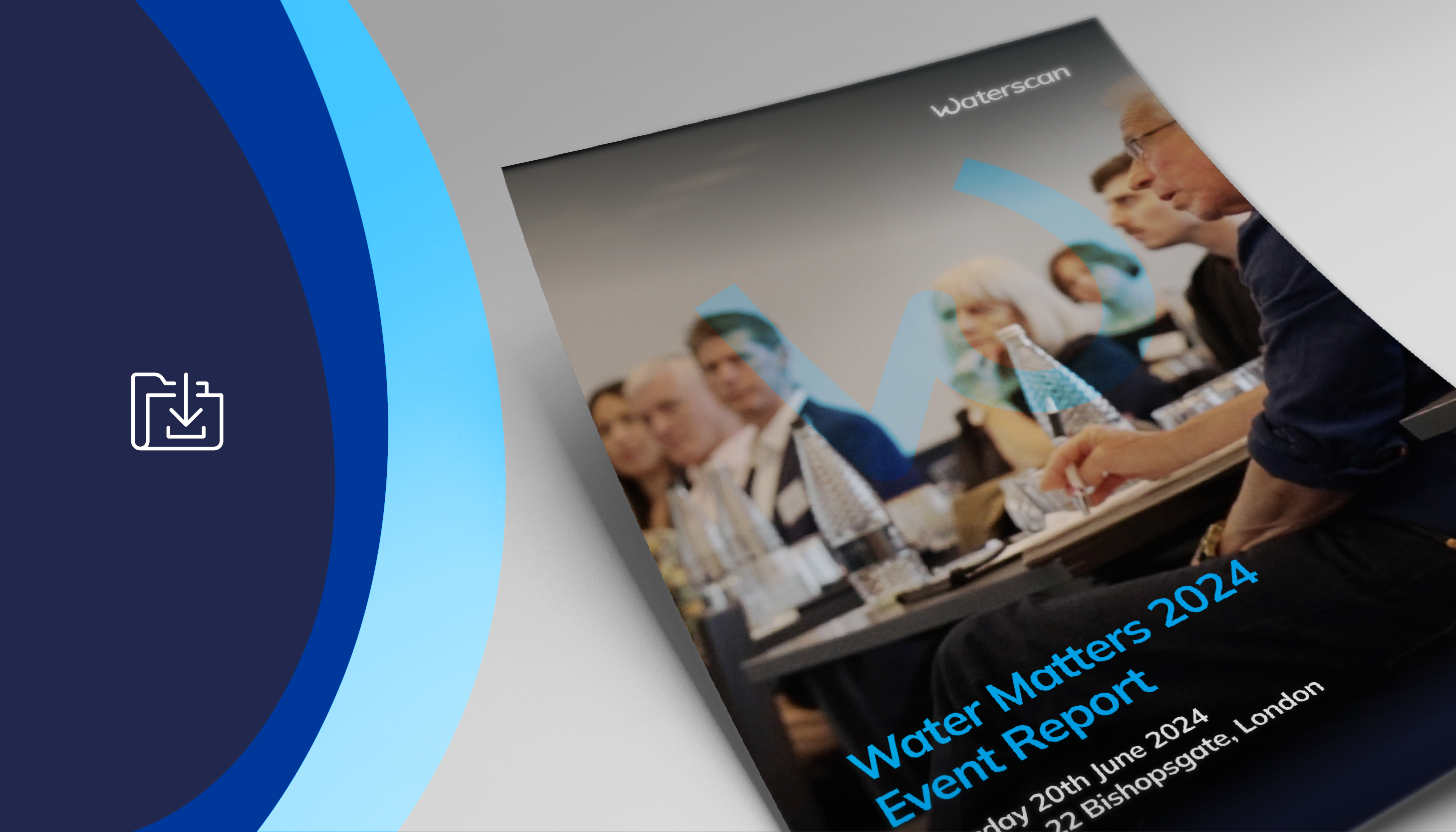On 22nd September 2021, Waterscan hosted an online meeting of public sector utility and sustainability professionals on mitigating risk and maximising control through water.
Joining subject experts from Waterscan was Jon Williams, Environmental Management (Utilities) Officer at Sefton Council, who spoke about his experience of driving action on water as part of the Council’s climate agenda.
Anastasia Sousanoglou, Water Strategy Manager at Waterscan, opened the meeting by outlining the primary water related risks.
Water-related risks are three-fold: financial, operational and environmental, she explained. “From a financial perspective, it’s likely that you’re paying for water that you’re not using through poor access to data and hence inaccurate, unverified bills. This makes it difficult to manage budgets in the way you’d like to and leads to operational impacts as internal resources spend time reconciling water company invoices. There may also be water leaks causing damage to buildings that have not been noticed due to poor data insight.
“Then there are sustainability risks of course. Any organisation that is not managing its water resource properly is contributing to the climate emergency. The Environment Agency has been warning us all for some time now that the effects of water demand outstripping supply are already being felt right across the UK.”
The group discussed that, while it has made sense to prioritise carbon, it’s important to recognise that carbon and water go hand-in-hand because the process of supplying and treating water is itself carbon-intensive. “Tackling water efficiency can generate some quick wins towards progress on your existing climate agenda and so it should be seen as an opportunity rather than ‘another thing we have to worry about’,” Anastasia advised.
The second part of the meeting, led by Sefton Council’s Jon Williams, centred on improving contingency plans and understanding options.
Jon explained that he has been working up plans to deal with flooding, drought and heatwaves, all of which involve water, and that this is particularly important for sensitive sites and critical infrastructure like hospitals, care settings and education facilities.
It’s worth noting that, while hospitals are deemed priority supply, any interruptions immediately compromise infection control and patient care while adding cost by bringing in emergency water supplies and wastewater services, and in the longer-term having a knock-on effect for routine appointments.
“In the past, aside from numerous billing issues, we have had situations where sensitive sites have not been properly classified and would therefore not have accessed critical support in the event of a problem,” commented Jon who acted on this and switched Sefton Council to Self-Supply in 2020.
“As a Self-Supplier, I have a far better understanding of water risks and, through direct access to our wholesaler, I can get information quickly and accurately and filter this to staff on the ground. For example, I was notified recently that our reservoir levels were worryingly low and that we should anticipate drought conditions, enabling me to give appropriate early warnings. In a different situation, I was told about an unexpected but major supply disruption as it happened so I could brief councillors and the chief executive ahead of residents and businesses petitioning them. “
“This kind of active participation in the water market is really paying off for us in terms of reducing cost, stress and workload. Working with Waterscan eliminated any compliance risks because my account team took on these responsibilities. I can be involved as much or little as I like but I have a safety net in the team, and I no longer have to watch our invoicing like a hawk!” he concluded.
One meeting attendee commented: “Jonathan’s experience sounds like a breath of fresh air for the market which, in my experience, is generally very slow and continues to play catch-up to the other utilities. I certainly get very little communication from our water suppliers.” The remark resonated across the group.
The final part of the meeting on collaboration was presented by Waterscan’s Strategy Director Claire Yeates. She explained how, when the market opened, roles and responsibilities of trading parties changed dramatically and for public sector customers particularly, it became a challenge to know who to speak to and how to find a water supplier that was aligned with your internal priorities. While new retailers entered the market, a lot of the knowledge and experience stayed with wholesalers and information just wasn’t getting through to customers.
“Collaboration brings efficiency and goal alignment; this is now critical when it comes to water management in the UK. Remember that retailer priorities will always be about billing, not dealing with the bigger issue of climate change. However, accurate invoicing and good customer service should be automatic, so that we can all focus on what’s really important,” she said.
The quarterly Self-Supply Users Forum sessions have become a cornerstone of collaboration and customer-oriented action across the water market. Claire continued: “Every organisation that has taken the Self-Supply route is looking to protect natural water resources and is treating water as an operational priority. This is completely aligned with what Defra and Ofwat are working towards. The Self-Supply community has been a real driver for change in the market, escalating deliverables even though every party is at a different stage on their water journey.”
Read more about Sefton Council’s Water Journey or how others are working on water.




